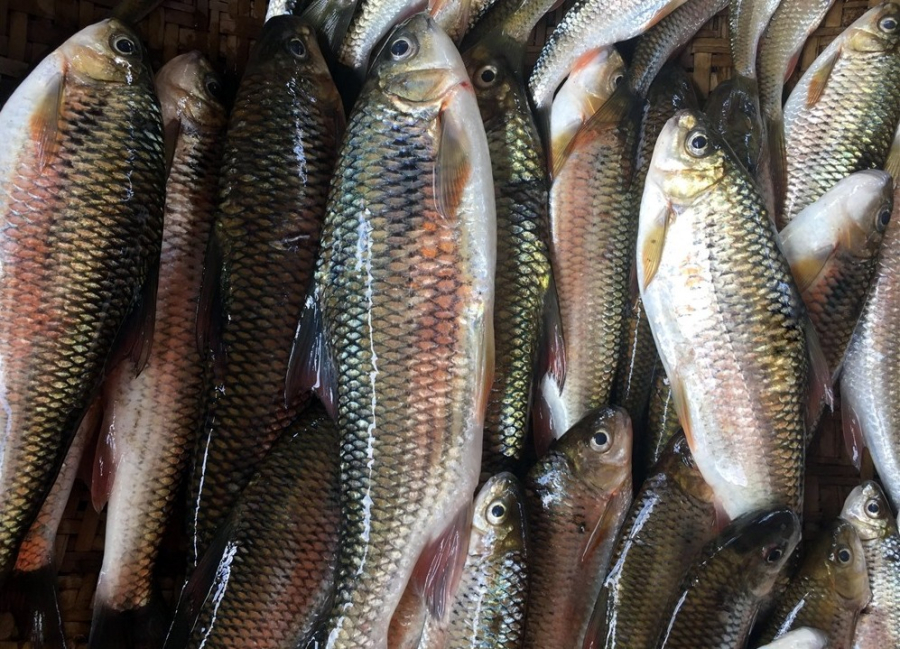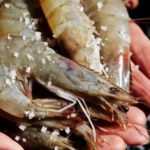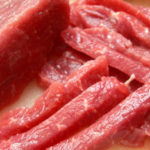The Nutritional Value of Fish
Fish contains many nutrients that many people are lacking in such as high-quality protein, iodine, various vitamins, and minerals. Especially fatty fish (also known as oily fish) like salmon, sardines, tuna, and mackerel, are rich in nutrients. Fatty fish also contain a lot of omega-3 fatty acids, which are important for the body and brain function and help reduce the risk of many diseases.
To meet the body’s omega-3 needs, it is recommended to eat fatty fish at least once or twice a week. If you are a vegetarian, you can choose to supplement omega-3 from algae.

Some Health Benefits of Fish
– Reduces the risk of heart disease and stroke
– Fish is rich in important nutrients for body development
– Fish helps enhance brain health
– Fish helps prevent and treat depression
– Fish provides vitamin D
– Fish reduces the risk of autoimmune diseases
– Prevents asthma in children
Who Should Avoid Eating Fish
People with gout
Fish is very high in purine, which gets broken down into uric acid in the body. Therefore, eating more fish can increase the risk of gout or worsen the condition if you already have it.
People with digestive disorders
Digestive disorders can cause discomfort, abdominal pain, and fever. Furthermore, people with loss of appetite and bloated stomachs face a lot of annoyance in their daily lives.
People with digestive disorders who eat a lot of fish may not see an improvement in their condition, but rather their condition may become more severe due to the high protein content in fish.
People with digestive disorders should drink a lot of water, about 2.5-3 liters of water per day, divided into 6-8 times throughout the day, preferably on an empty stomach in the morning. It can also be replaced with mineral water that is high in potassium and magnesium.
Prioritize white meat such as poultry and limit fish consumption.
People allergic to fish
People who regularly experience symptoms such as redness, hives, itching, vomiting, swelling, sneezing, difficulty breathing due to bronchial spasm, worsening blood pressure, or anaphylactic shock are allergic to fish.
These individuals should not eat too much fish, especially those allergic to fish.
People with allergies should avoid foods that are high in protein such as shrimp, crab, beef, chicken, seafood, canned foods, sausages, peanuts, sesame seeds, eggs, milk, chocolate, etc.
People with liver and kidney damage
Fish contains high-quality protein, and the protein we consume is mainly metabolized in the liver and kidneys. For those with severe liver and kidney dysfunction, excessive protein consumption can put a burden on these organs. This is especially true for sea fish such as mackerel, tuna, etc., which can worsen the condition.

Patients with liver cirrhosis
Cirrhosis is the end stage of chronic liver disease, with severe complications that can threaten life. Although it is difficult to completely cure, early detection for treatment, avoiding strenuous labor, and adhering to a proper diet can help patients improve symptoms and prevent complications.
When a person has cirrhosis, the body has difficulty producing blood clotting factors, combined with low platelets, it can cause bleeding. In this case, if the patient eats mackerel, trout, tuna, etc., it will worsen the disease.
People with tuberculosis
Tuberculosis is caused by the activity of tuberculosis bacteria. People infected with tuberculosis can get sick shortly after infection, or many years later, when the immune system is weakened due to other reasons such as old age, diabetes, HIV infection, kidney disease, or cancer.
If tuberculosis patients eat a lot of fish, it can cause allergies, resulting in nausea, headaches, redness, conjunctival hyperemia, or even, rapid heartbeat, diarrhea, abdominal pain, shortness of breath, or increased blood pressure, and worse, it can cause brain bleeding.
Expert Advice on How to Identify Unsafe Food
Are you aware of how to inspect food for possible safety risks? With the presence of food products from unclear origins and chemicals used as preservatives, it is important to be vigilant in selecting food items for our families. Join us in the Food Tips section to take a closer look at how to select safe and healthy food for our families!



































